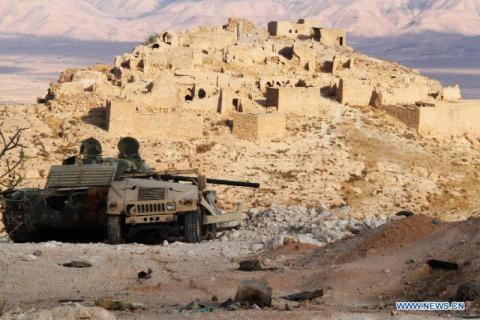
On 22 July 2015, Alkarama referred the cases of 39 Libyan citizens, executed by the Zintan forces in the city of Kikla on 11 October 2014, to the United Nations Special Rapporteur on Extra-judicial, Summary or Arbitrary Executions (SR SUMX) and the Office of the Prosecutor of the International Criminal Court (ICC). Recalling that an International Commission of Inquiry (CoI) was established in February 2011 to investigate all human rights violations in Libya, Alkarama called upon the CoI to urgently investigate the Kikla massacre in accordance with its mandate.
The Kikla Massacre
On 11 October 2014, the Zintan forces – a government-controlled militia drawn from the garrison town of Zintan in northwest Libya and acting as the regular force of the internationally-recognised government of Tobruk – attacked the city of Kikla, located 130km south of Tripoli. As documented by Alkarama in June 2015, they arrested dozens of persons suspected to have remained loyal to the government of Tripoli – all of whom were subsequently subjected to severe acts of torture – and killed many civilians. In fact, in just a few hours on the first day of the attack, the Zintan forces summarily executed at least 39 civilians in the city and its periphery. Most of them were unarmed when they were shot dead, while others were playing football in a field. This was one of the gravest massacres of civilians since the beginning of the conflict. The following days, the militiamen executed nearly 200 civilians.
Most of the 39 civilians who were killed were aged between 19 and 52 years old. In fact, the Zintan forces shot at civilians indiscriminately, even targeting ambulances. Having fled the city in fear of reprisals, many families of the victims were not even able to get access to their relative's death certificate, as unattended bodies were buried by the Libyan Red Crescent and other citizens where the killing occurred.
Today, almost all civilians have fled Kikla, which has become a military zone belonging to the Zintan forces. Despite the occurrence of crimes in areas under the control of the Government of Tobruk, the authorities did not open an investigation into the massacre to hold those responsible to account. Still traumatised and fearing for their lives, all the victims' families have asked to remain anonymous.
These cases are illustrative of the increasing violence and extrajudicial killings by forces loyal to the internationally-recognised government of Tobruk in Libya, with a view to intimidate, eliminate, and punish all discordant voices. These cases are just some examples among hundreds of similar collected cases who have suffered the same fate.
Calling for Urgent Investigation by the International Commission of Inquiry on Libya
Recalling that an International Commission of Inquiry (CoI) on the Libyan Arab Jamahiriya was established by the UN Human Rights Council resolution S-15/1 of 25 February 2011 to "investigate all alleged violations of international human rights law in Libya, to establish the facts and circumstances of such violations and of the crimes perpetrated, and, where possible, to identify those responsible [...] with a view to ensuring that [they] are held accountable," Alkarama's Legal Director, Rachid Mesli called on the CoI to investigate all grave human rights abuses committed in Libya by all parties to the conflict, and in particular the killing of civilians, enforced disappearances, torture and arbitrary detention. "As one of the gravest massacres since the 15 February 2011 revolution, the Kikla massacre should constitute the CoI's priority," Mesli concluded.
A Crime against Humanity?
Alkarama would like to emphasize the extreme seriousness of these mass killing in the city of Kikla and its periphery that do not only constitute summary executions but also a violation of Article 7 of the Rome Statute of the ICC, which defines crimes against humanity as "any of the following acts" – such as murder, arbitrary detention, torture and enforced disappearance – "when committed as part of a widespread or systematic attack directed against any civilian population, with knowledge of the attack."
In fact, the countless acts of violence perpetrated by the Zintan forces against non-combatants in the past months are part of a broader wave of retaliatory measures taking the form of widespread and systematic attacks against civilian populations, which could therefore be qualified of crimes against humanity.
Alkarama therefore calls on the government – as the first bearer of the responsibility to protect the Libyan citizens – to take a public stand to denounce the crimes and assert their willingness to investigate and prosecute the perpetrators of such crimes. Alkarama also believes that, in view of the gravity of the facts reported, such a situation should be referred for investigation in accordance with the UN Security Council Resolution 2174 of 27 August 2014, to take all legal measures required in this situation.
Alkarama also urged the United Nations Special Rapporteur on Extra-judicial, Summary or Arbitrary Executions (SR SUMX) to recall the Libyan authorities of their obligations to respect and guarantee human rights and fundamental freedoms in all circumstances, and to put immediately an end to this practice.
For more information or an interview, please contact the media team at media@alkarama.org (Dir: +41 22 734 1008)
